At a critical juncture in Putin's illegal invasion of Ukraine, billionaire entrepreneur Elon Musk ordered the engineers at Starlink to geofence a communications network Ukraine relied upon to prevent the Ukrainian Navy from striking at the Russian Black Sea Fleet at anchor in Sevastopol. According to a yet-to-be-released book titled "Elon Musk" by journalist Walter Isaacson, Musk had been convinced by his conversations with senior Russian officials that they would respond to such an attack with nuclear weapons.
“How am I in this war?” Musk asks Isaacson. “Starlink was not meant to be involved in wars. It was so people can watch Netflix and chill and get online for school and do good peaceful things, not drone strikes.”
Since that article appeared, Musk has commented, giving some insight into his thought process.
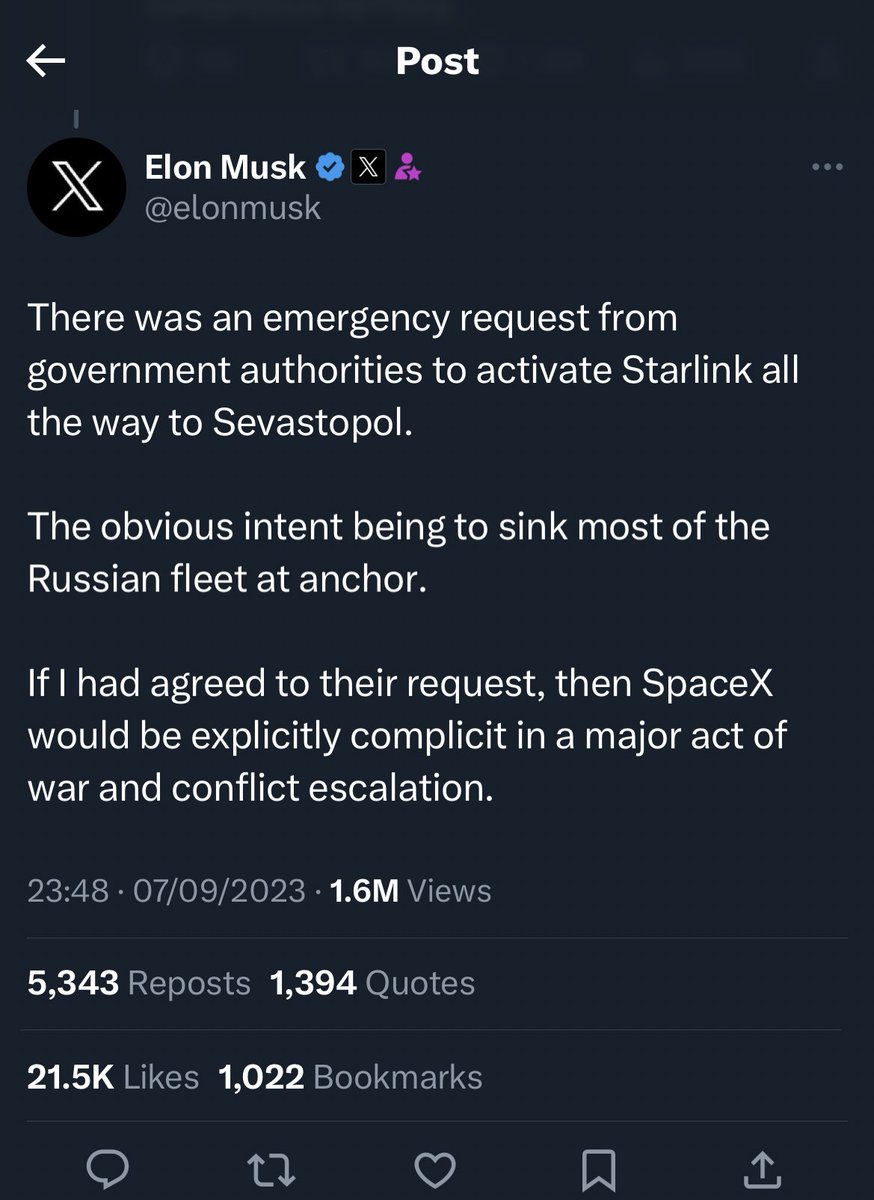
Russian sympathizers and Musk's choir of fanbois are hailing his decision to save the Russian fleet from an embarrassing defeat as some sort of supreme act of statesmanship. It isn't. It was an act of cowardice. Let's review the bidding.
My colleague Jeff Charles sees things somewhat differently. He has two posts on the subject: Elon Musk’s Harrowing Decision: How Starlink Could Have Changed the Course of the Ukraine-Russia Conflict, and a VIP post, Elon Musk and Ukraine: How Much Power Should One Man Have? We don't necessarily agree on this subject, but that's why you come to RedState because we aren't a hive-mind.
Just hours after the Russian invasion began, Musk opened access to Starlink in Ukraine in response to Russia's cyberattacks that had gravely reduced the ability of the Ukrainian government and military to communicate.
Starlink service is now active in Ukraine. More terminals en route.
— Elon Musk (@elonmusk) February 26, 2022
The Russian government informed him via Twitter that his actions were interfering in Russia's top national priority. If he was truly concerned about escalation, this tweet should have stopped him in his tracks.
Ukraine civilian Internet was experiencing strange outages – bad weather perhaps? – so SpaceX is helping fix it
— Elon Musk (@elonmusk) March 3, 2022
If Musk wants to know, "How am I in this war?" this is the answer. He's "in this war" because he inserted himself into a war. Why? It's hard to tell. Maybe it was just altruism and doing the right thing. But I've lived too long and encountered too few saints to give much credence to this explanation.
On the other hand, Musk's commentary on Ukraine makes it very easy to mistake him for a pro-Russian influencer. For instance, he uncritically retweeted this from a well-known pro-Russian account. The tiniest bit of due diligence would have revealed it to be absolute bullsh**, but Musk pushed it out to his millions of followers as though it had the slightest link to reality.
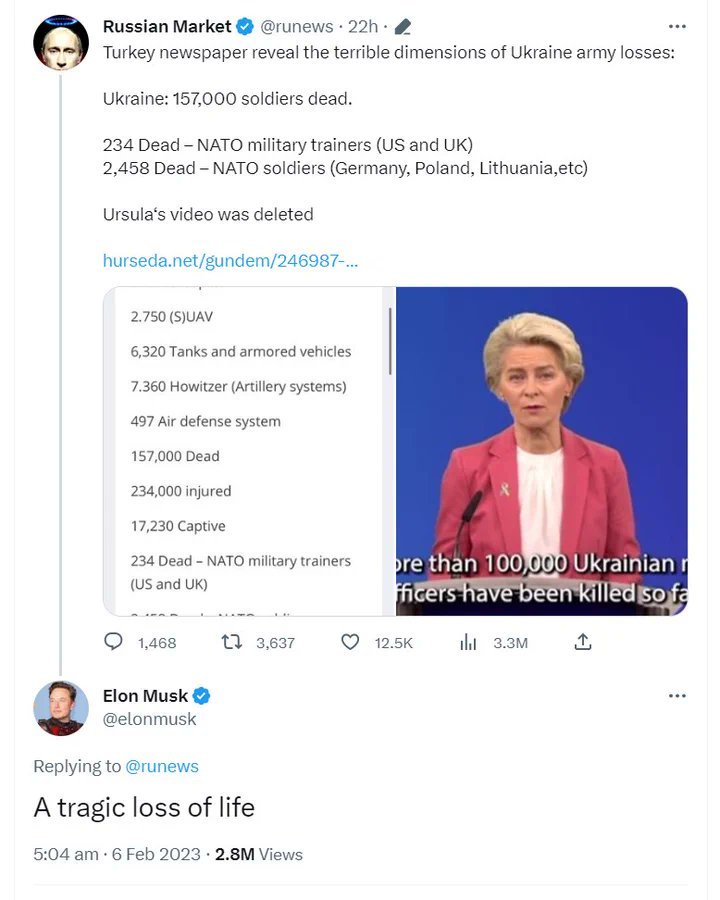
His close friend David Sacks pushes the latest Kremlin talking points daily. This article summarizes the instances that could make a curious person, well, curious. Could it have to do with his hotly contested takeover of Twitter and trying to curry favor with Twitter's loudest leftist voices? I don't know, but you can't get away from the perception he's created.
While the episode of Musk sandbagging a major Ukrainian military operation is new, it has been known for a while that Starlink will not work inside Russia or Crimea. This Economist article is from March 20, 2023.
At an early stage the Ukrainians appeared to pin hopes for controlling drones behind Russian lines on Elon Musk’s Starlink satellites, which work at frequencies and in numbers that Russian systems struggle to jam. A naval-drone attack on Russia’s Black Sea fleet in October reportedly made good use of this gap. But Mr Musk, apparently worried about the escalatory effect of such moves, has stepped in where Russian technology proved unable to. Starlink now uses geofencing to block the use of its terminals—not only above Russian-occupied territory inside Ukraine, but also, according to a Ukrainian military intelligence source, over water and when the receiver is moving at speeds above 100km per hour. “You put it on a boat at sea and it will simply stop working,” he says. So Ukraine’s drone developers now use a range of other, more expensive communication systems, with multiple systems often on the same vehicle. The success of the attack on February 28th in getting so close to Moscow suggests that Ukraine may be getting close to a solution that works.
We don't know from the excerpts released for Isaacson's book when Musk had that tête-à-tête with those unnamed senior Russian officials about Armageddon. We can probably assume that it took place after the Ukrainian drone attack on the headquarters of the Black Sea Fleet in Sevastopol during "Navy Day" celebrations on July 31.
We can also place the date of the planned attack referred to in Isaacson's book as shortly before September 21, 2022. On that day, a pair of Ukrainian-built unmanned surface vehicles sporting Starlink antennae washed ashore in Occupied Crimea and gave the Russians a close-up look at how they worked.
The possible parts mentioned above are marked here (Blue 🔵: possible Starlink antenna; Red 🔴: LRF; Green 🟢: possible detonators/fuzes).
— War Noir (@war_noir) September 21, 2022
Additionally, "4.5.VZNSK" markings can be seen on the USV.
The USV claimed to be destroy after inspection by #Russian Forces. pic.twitter.com/V4LoRsvAOV
According to CNN's account of a yet unseen book
“There was an emergency request from government authorities to activate Starlink all the way to Sevastopol,” Musk posted on X, the platform formally known as Twitter that he owns. Sevastopol is a port city in Crimea. “The obvious intent being to sink most of the Russian fleet at anchor. If I had agreed to their request, then SpaceX would be explicitly complicit in a major act of war and conflict escalation.”
CNN says Musk referred to the planned attack as a "mini-Pearl Harbor." This, right here, is a flag. The correct analogy would be a mini-Port Arthur, as it involved a night naval attack against a sleeping Russian fleet and did not involve airplanes.
Unlike a lot of geopolitical events, we don't have to run a "what if" exercise to see what would've happened if Musk had, in my view, done the right thing. The test of Musk's fear of nuclear war precipitated by an attack on Sevastopol was tested on October 28, 2022, when Ukrainian USVs entered the Black Sea Fleet anchorage; see Ukraine Carries out Extensive Drone Attack on Russia's Black Sea Fleet Sevastopol Homeport. The vessel that had replaced the Moskva (see BREAKING. The flagship of Russia’s Black Sea Fleet was Hit by Ukrainian Missiles, Dead in the Water, Crew Evacuated and BREAKING. Russian Flagship Sinks While Being Towed to Port.) as flagship, the Admiral Makarov, was damaged. Spoiler Alert: There was no nuclear retaliation. Moreover, it shows the Ukrainians, who know the Russians much better than Musk ever will, knew the threat was bluster.
From Isaacson's book and Musk's tweet, we have some troubling issues.
Why was Musk in contact with leaders in Russia? While the US was not at war with Russia, it had definitely chosen sides before September. Sanctions by the US and EU meant that Musk had no business opportunities in Russia. What was the subject? According to Musk, the Ukrainians trusted him enough to make the "emergency request" for Starlink access "all the way to Sevastopol." You wouldn't have to reside on the right half of the IQ Bell Curve to figure out what it meant. This means that he had conversations with the Ukrainians that led them to believe that not only was he on their side but that he could be trusted with highly classified information. Who can blame them? After all, he'd gifted them a communications network. At this critical juncture, he stopped cooperating. Less than a month later, he was demanding to get paid for what he had freely given.
The lesson we can take away from this is that money can't buy good judgment. Musk chose, for whatever reason, to get involved in the war. If he thought that providing Starlink would be used exclusively to communicate inside Ukraine, he's more the fool. Once he was involved in the war, and Ukraine was somewhat reliant on him, he contacted his friends among "senior Russian officials," and they carted out the "if you do that, we'll nuke your ass" trope that Putin and his cronies toss around like beads at Mardi Gras. By the time the planned attack on Sevastopol rolled around, Russia had threatened the use of nuclear force at least five times and had been ignored each time. That Musk was played by this nonsense shows the truth of the old saying, “If you sit in on a poker game and don’t see a sucker, get up. You’re the sucker.”
Musk can't claim any moral high ground here with his appeal to "escalation" and whatnot. The Moskva had been sunk. The truth about Bucha was known. Ukraine was only in the fight because Musk's Starlink had thrown them a lifeline. Apparently, he gave no thought to the notion that knocking out the Black Sea Fleet might bring about negotiations. Making matters worse, the ships he saved in Sevastopol regularly sortied into the Black Sea to launch cruise missiles at Ukrainian cities. Even more damning is the sequence of events. Unless the Ukrainians launched the operation without knowing Starlink would not work in the target area, the implication is they were either told or led to believe it would be operational, only to have the rug pulled out when they launched the attack.
While I admire Musk's business acumen, or, in the case of Tesla, his ability to wring subsidies from the US government, he also seems afflicted by a severe case of the Dunning-Kruger Effect. Being smart in one thing doesn't mean that intelligence readily translates into another field. If you want to see Dunning-Kruger in action with smart people, talk to any MD about something where you have some knowledge or expertise, and they don't. You'll end up amazed by how little you know.
Whatever Musk's intentions, I think his actions are so typical of what is nearly a Silicon Valley stereotype. A megawealthy tech-bro, unmoored from morality and without a solid grounding in history, politics, foreign policy, or political science, and perhaps suffering from the delusion that his popularity is in no way related to his bank account.
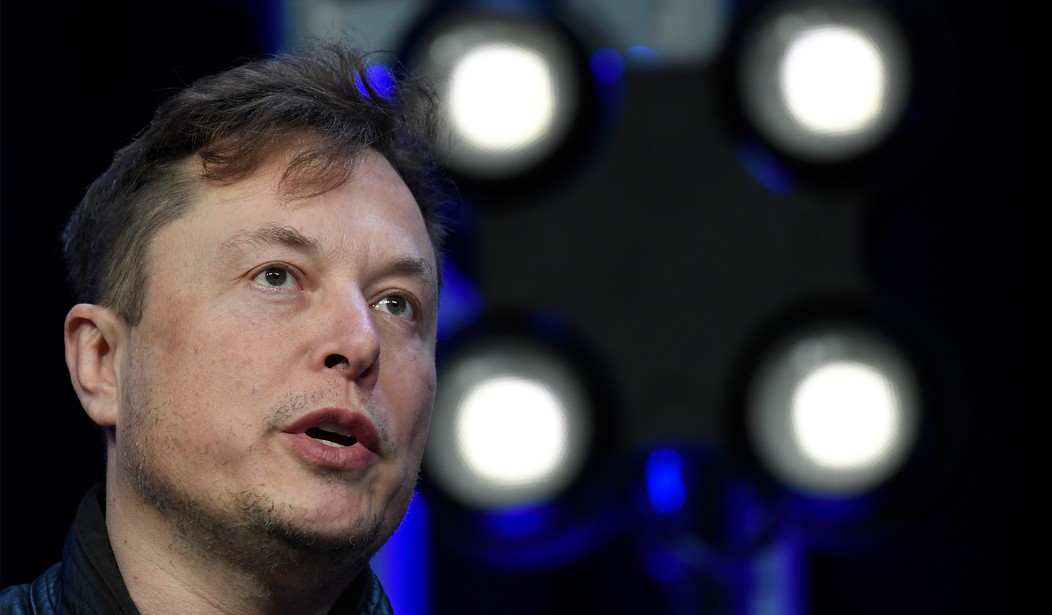







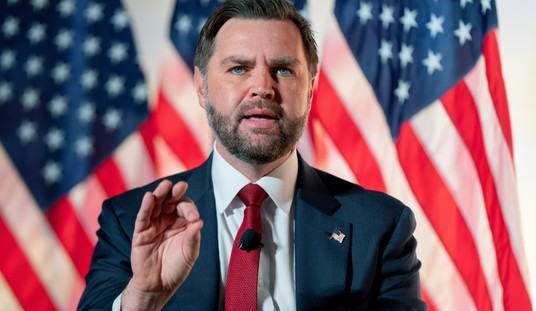
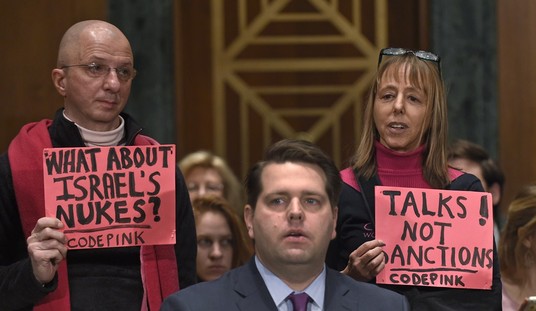
Join the conversation as a VIP Member